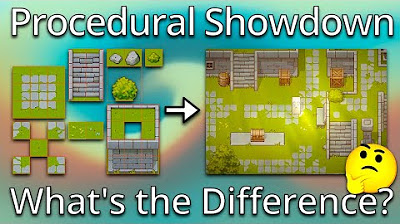Harvard Professor Explains Algorithms in 5 Levels of Difficulty | WIRED
Summary
TLDR视频脚本通过一系列访谈和示例,探讨了算法在日常生活中的普遍应用和重要性。从计算机科学教授到数据科学家,不同领域的专家分享了他们对算法的理解,包括搜索算法、机器学习和深度学习等。同时,讨论了算法的未来发展,以及它们如何影响我们的生活和工作。视频强调了算法的基础知识和不断进步的技术之间的联系,以及对这些技术潜在的利弊进行批判性思考的重要性。
Takeaways
- 📚 算法无处不在,无论是在物理世界还是虚拟世界中都扮演着重要角色。
- 👨🏫 哈佛大学计算机科学教授David J. Malan强调算法是解决问题的机会。
- 🖥️ 计算机的核心部件包括CPU(中央处理器)和内存(RAM)。
- 🔍 算法可以是有步骤的指令集,用于指导人们或机器人完成特定任务。
- 🥪 通过制作三明治的例子,展示了算法需要精确的指令来正确执行。
- 🔎 搜索算法如Google和Bing背后的技术是快速有效地查找信息的关键。
- 📈 数据科学和机器学习领域中,算法用于优化模型和解决业务问题。
- 🤖 机器人学习结合了机器人技术和机器学习,用于开发智能系统。
- 🧠 人工智能和机器学习的发展,使得算法在日常生活中的应用越来越广泛。
- 🚀 算法的研究和发明涉及思考效率和连接不同领域的知识。
- 🌐 算法的进步和理解与我们对技术的掌握和推进是松散耦合的。
- 💡 尽管大型语言模型等先进技术的发展,基础算法的学习仍然对于理解技术至关重要。
Q & A
算法的重要性体现在哪些方面?
-算法的重要性体现在它们无处不在,无论是在物理世界还是虚拟世界中。算法为解决问题提供了机会,而我们生活中处处都有问题需要解决。
计算机科学教授是如何定义计算机的?
-计算机是电子设备,形状像矩形,可以进行敲击输入操作。
CPU和内存(RAM)在计算机中分别扮演什么角色?
-CPU是计算机的大脑,负责响应指令,进行数学运算等操作。内存(RAM)则用于存储正在使用的程序和数据。
硬盘(HDD或SSD)与内存(RAM)有什么区别?
-内存(RAM)是易失性存储,用于存储当前正在使用的程序和数据。而硬盘(HDD或SSD)是非易失性存储,用于永久保存数据、文档等信息,即使断电也能保持信息不丢失。
算法可以如何帮助我们提高效率?
-算法通过提供精确、逐步的指令来解决问题,从而提高效率。例如,在搜索算法中,通过优化搜索过程,可以更快地找到所需信息。
什么是递归算法?
-递归算法是一种算法,它通过重复使用自身来解决问题,每次解决的都是问题的一个更小的部分,直到问题被完全解决。
在数据科学领域,算法的作用是什么?
-在数据科学领域,算法主要用于优化模型,找到最佳的数据集描述,或者作为数据产品的核心,帮助解决新闻编辑室和商业问题。
大型语言模型(LLM)在人工智能中扮演什么角色?
-大型语言模型是人工智能的一个特殊领域,主要用于预测下一个词或一系列符号。它们可以用于生成文本、聊天机器人等应用,并且在不断学习和优化以提高性能。
为什么说我们对算法的理解与我们的进步是松散耦合的?
-我们对算法的理解与我们的进步是松散耦合的,因为即使我们不理解算法的底层原理,也可以使用高级工具和库来实现复杂的功能。然而,深入理解算法仍然对于开发和优化更高效的算法至关重要。
算法在日常生活中的应用有哪些?
-算法在日常生活中的应用非常广泛,包括搜索引擎优化、推荐系统(如YouTube、Netflix)、社交媒体内容推荐(如TikTok的For You页面)等。算法帮助我们更有效地找到和组织信息,提高我们的生活质量。
对于想要进入计算机科学领域的学生或成人,大型语言模型(LLM)的出现意味着什么?
-大型语言模型(LLM)的出现并不意味着我们应该避免进入计算机科学领域。相反,它们提供了新的学习和研究机会,让我们可以探索如何训练、微调和应用这些模型来解决实际问题。
Outlines

此内容仅限付费用户访问。 请升级后访问。
立即升级Mindmap

此内容仅限付费用户访问。 请升级后访问。
立即升级Keywords

此内容仅限付费用户访问。 请升级后访问。
立即升级Highlights

此内容仅限付费用户访问。 请升级后访问。
立即升级Transcripts

此内容仅限付费用户访问。 请升级后访问。
立即升级浏览更多相关视频

Procedural Generation with Wave Function Collapse and Model Synthesis | Unity Devlog

【中学公民⑦】三権分立の入試に出るポイントを解説します(中学社会・高校入試)

Geoffrey Hinton: The Foundations of Deep Learning

Standards for Mathematical Practice

Intro to the Laplace Transform & Three Examples

英语的语调 (如何用母语人士的"腔调"说话?)

Red Flags, Icks, and Toxic Traits… Is Dating Doomed?
5.0 / 5 (0 votes)